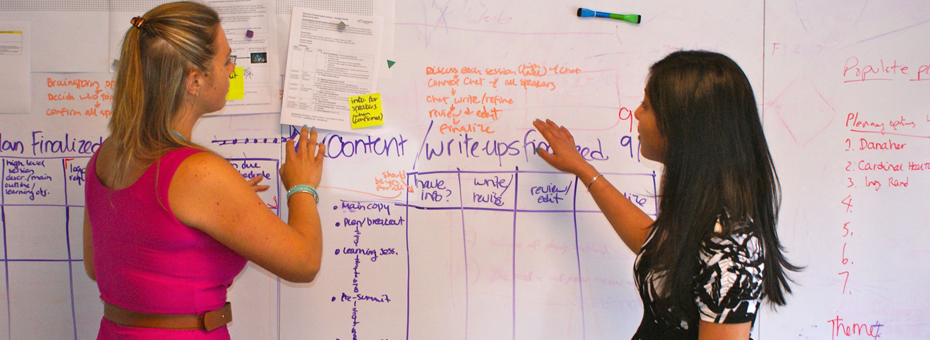At the Lean Enterprise Institute we want to help companies make things better through developing people, minimizing waste, and increasing efficiency. Then we want to help companies learn and grow by telling their own story.
I remember hearing a story in which one of our own team members here at LEI was criticized for “giving away the answer” on a project. What value does a competing firm have if someone just gives away the answer, right? Well, I think of Toyota and TSSC, how both of these companies frequently just “give away” the answer, too. No one seems to think twice about it.
Why? Because even when we give away the answer, this lean stuff is pretty hard to do. If knowing the answer to a problem or question were enough, all companies in the world would be lean! We know this is not the case. What makes the difference for effective lean practitioners and successful companies is sustained practice.
So, why is it Lean so hard? I think we all know what it’s like to want to find the quick answer or secret sauce to anything. Pick up any beauty magazine and it will tell you 10 ways to drop 10 pounds in a just few days. But how often do you come across an article that tells you how to keep 10 pounds off for life? The key idea here is sustainability. It’s the same thing with lean thinking and practice. Tools give you quick wins, but without disciplined practice and a management system in place to develop people and leadership capabilities, improvement projects quickly fall to the wayside. You quickly gain back those 10 pounds you were so excited to lose.
There’s a Native American story of two wolves that live inside everyone: a good wolf and a bad wolf. How do you know which wolf wins? The one you feed. A fellow staffer told me that by feeding the good wolf (for example, by exercising daily), there’s a greater chance you exercise again the next day. When you make an excuse, you feed the other wolf, the bad wolf, and there’s a much greater chance that you will fail to exercise the next day.
We keep 10 pounds off for life by changing our habits. By swapping unhealthy habits for healthy ones, we create new routines. What we’re doing is creating a structure for self-improvement. You might want to think about having a personal trainer/coach to help you get there. No one says you have to do this lean transformation work alone. In fact, it’s often easier to have someone help push you in the beginning until you can take yourself or your team to the next level.
In a business environment, coaching is a great way to create problem solvers. Just like in sports, coaches help us get to that next level. They push our thinking and support and guide us when we’re stuck. Lean tools will only help you if you know how to use them, and this is where a good coach comes in. Build a management structure for improvement and capability development and everything else eventually falls into place. Practice creating and maintaining new habits. And when in doubt, get a coach.





